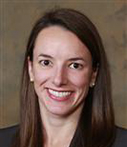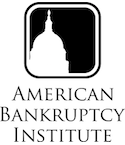With apologies to Twain and Disreali,[1] the title quote may come to mind when, in response to a defense letter outlining an ordinary course of business (OCB) defense comparing consistent and without-undue-collection-effort billing and payment practices in the “preference period”
Sites Committee
Committees
Does § 327(e) apply to a chapter 13 debtor’s request to employ special counsel? In In re Blume,[1] the U.S. Bankruptcy Court for the Eastern District of Michigan concluded it does not.
In Easley v. Collection Service of Nevada,[1] the U.S. Court of Appeals for the Ninth Circuit permitted the debtors to recover attorneys’ fees and costs incurred while appealing fees awarded for a willful violation of the automatic stay pursuant to 11 U.S.C. § 362(k)(1).
Concluding long and contentious litigation, the Sixth Circuit Court of Appeals recently affirmed a determination by the U.S.
Each year presents its own set of developments with respect to legislative proposals and enactments that impact the bankruptcy bar.
As transactional business attorneys, we strive to craft documents that are bullet-proof, covering every what-if scenario should a deal fall apart. We hope that the agreements we draft will result in a fair and just consequence for all parties to the bargain.
In the multi-billion-dollar claims-trading market, your offer and acceptance might not be what you thought it was.
Imagine that Hal Steinbrenner agreed to purchase the Boston Red Sox from John Henry, Tom Werner and Larry Lucchino. All three signed non-compete agreements promising to buy no interest in an MLB team for the next five years. Steinbrenner made a $1 billion down payment, and MLB Commissioner Rob Manfred signed off on everything.
Third-party releases can be an integral part of a chapter 11 bankruptcy case. These releases can have the effect of a nonconsensual resolution of state law claims, and a question exists as to how they are implicated in a Stern v. Marshall analysis.
ABI has been running a mediation training program in conjunction with St. John’s Law School each December for the past nine years. This program stands apart from other programs that are available for training in a more generalized capacity.









